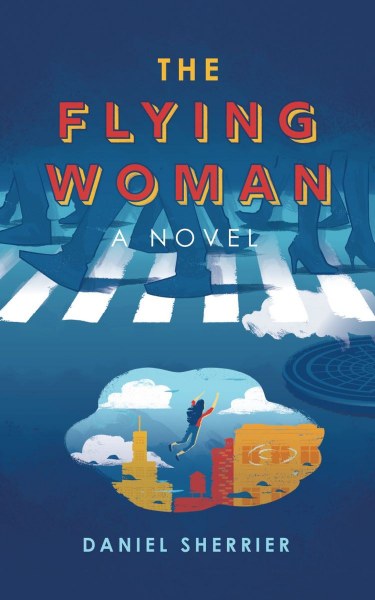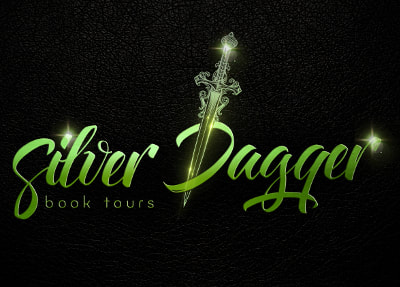So Here’s Why I Write…
By Daniel Sherrier
I recently reread George Orwell’s famous essay, “Why I
Write.” In it, he ascribes four primary motives to writers: egoism, aesthetic
enthusiasm, historical impulse, and political purpose. Different writers will
feel a stronger pull from one or two than the others, and the precise balance
might shift over a lifetime, but those four motives drive much of the prose
that exists and will exist throughout the world. I’d be lying if I claimed immunity.
Looking at my superhero novel The Flying Woman, I can
see those four motives playing roles of varying sizes.
Ego certainly factors into the equation. I would like to
think otherwise, but that would be self-delusion. There’s a line in the musical
Hamilton that goes, “God help and forgive me, I want to build something
that’s gonna outlive me.” And yes, I’d like that, too. I won’t live forever,
and I can’t take any books with me, but I can leave them behind and hope they
endure.
Along those lines, I also wanted to write the best superhero
novel ever. There are certainly many good and even great superhero prose novels
out there, but which has the reputation as being the pinnacle of the genre in
this medium? I’m not saying I succeeded—that’s ultimately up to the readers,
not the writer. But after a lifetime of reading superhero comics, I wanted to
put my own stamp on the genre.
Aesthetic enthusiasm is more a motivation for editing than
writing, but I do certainly appreciate aesthetics and value their importance.
I’m happy to take the time to ensure the correct word is always in the correct
place, and unbroken walls of text often look plain ugly. Dialogue must always
“sound” right and flow with a natural rhythm.
So there’s some aesthetic enthusiasm in the mix, but I
wouldn’t call it my reason for writing in the first place.
When I was a newspaper reporter, the historical impulse was
by far my strongest motive for that particular type of writing. My job was to
present people and events as they were, and to provide readers with enough
information to help them form their own conclusions. It was never my place to
tell them what to think.
With fiction, and especially superhero fantasy fiction, I’m
obviously not presenting factual accounts or even slice-of-life drama. But I do
strive to present human nature as it is—the good, the bad, and the ugly. And
stories of superheroes and supervillains can tell us quite a bit about
ourselves. It’s no surprise that superhero origin stories are often great
coming-of-age stories, too.
In The Flying Woman, a young woman acquires powers she
never expected, and she has to figure out how to become this perfect superhero
even though she knows she’s nowhere near perfect. Effectively, she has to
figure out how to become the adult she needs to be. The development of a
superhero, then, is another way to show how a person matures.
So maybe that’s not quite a “historical” impulse, but it’s
adjacent.
And then there’s political purpose. I generally steer clear
of this, as I believe partisan politics and fiction don’t mix (though perhaps
that is a type of a political opinion).
Writing a female superhero lead might get me involved in
current issues of representation in entertainment. Maybe I’m just looking
through rose-colored glasses thanks to a youth of reading X-Men and watching
Star Trek, but to me, a female superhero seems every bit as natural as a male
superhero. As I type that, I worry that I sound like I’m pandering, when that’s
the last thing I want to do.
In my mind, the way to reduce any disparities in
representation is simply by writing (for example) a female lead in a
matter-of-fact way, without any overt agenda. I wrote Miranda as a person first
and foremost, not a “strong female superhero protagonist.” I focused less on
issues that are unique to women today and more on issues that are common to
both men and women—fear of failure, accepting responsibility, new
responsibilities conflicting with previous ambitions, striving to live up to
others’ expectations, and so on—the universal, timeless issues where we can
find common ground, not the contemporary identity politics that can divide us …
the broader human nature that I mentioned earlier.
So I wrote a non-political female superhero. The statement is
that it shouldn’t be a statement. Is that political in a roundabout way?
Anti-politics as a type of politics? I’ll let others decide.
That wraps up Orwell’s four motives, but I’ll add one of my
own: the joy of creation, of building something new.
Sure, I’ve drawn on elements already present in the
culture—established conventions of the superhero genre, themes others have
previously tackled, tried-and-true plot structure, and so on. But I assembled
those pieces in my own unique way, to create something that only I would have
created.
There’s nothing like that thrill, though maybe this is just
another form of egoism. Who am I to argue with Orwell?
The impossible has become reality! A masked man possesses extraordinary powers, and he’s using those fantastic abilities to fight crime and pursue justice. Meanwhile, Miranda Thomas expects to fail at the only thing she ever wanted to do: become a famous star of the stage and screen. One night, Miranda encounters a woman who’s more than human. But this powerful woman is dying, fatally wounded by an unknown assailant. Miranda’s next decision propels her life in a new direction—and nothing can prepare her for how she, and the world, will change.
Amazon * B&N * Books-A-Million * IndieBound
Daniel Sherrier is a writer based in central Virginia. He is the author of the novel "The Flying Woman." A College of William & Mary graduate, he has worked for community newspapers, written a few plays that have been performed, and earned his black belt in Thai kickboxing. And there was that one time he jumped out of an airplane, which was memorable.
$25 Amazon gift card
Follow the tour HERE for special content and a giveaway!








No comments:
Post a Comment